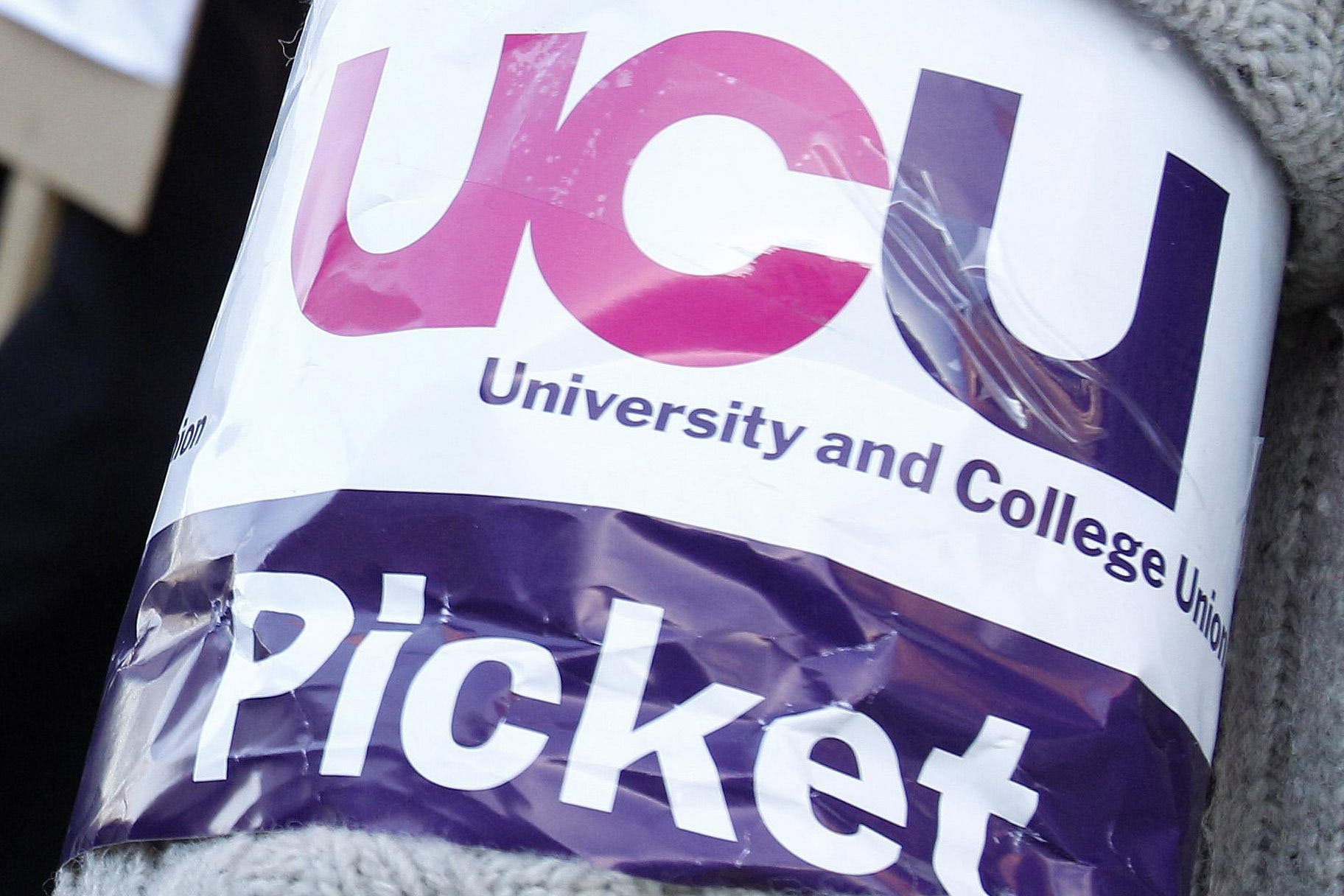70,000 lecturers and other staff at 150 universities to strike for three days
The union said disruption can be avoided if employers make improved offers.

Your support helps us to tell the story
From reproductive rights to climate change to Big Tech, The Independent is on the ground when the story is developing. Whether it's investigating the financials of Elon Musk's pro-Trump PAC or producing our latest documentary, 'The A Word', which shines a light on the American women fighting for reproductive rights, we know how important it is to parse out the facts from the messaging.
At such a critical moment in US history, we need reporters on the ground. Your donation allows us to keep sending journalists to speak to both sides of the story.
The Independent is trusted by Americans across the entire political spectrum. And unlike many other quality news outlets, we choose not to lock Americans out of our reporting and analysis with paywalls. We believe quality journalism should be available to everyone, paid for by those who can afford it.
Your support makes all the difference.More than 70,000 lecturers and other staff at 150 universities will strike for three days later this month in a long-running dispute over pay, working conditions and pensions.
The University and College Union (UCU) said the strikes – on November 24, 25 and 30 – will be the biggest ever to hit UK universities and could impact 2.5 million students.
The union said disruption can be avoided if employers make improved offers, but warned that strike action will escalate in the new year alongside a marking and assessment boycott if the dispute is not resolved.
Union members will also begin industrial action short of strike action from November 23, which includes working to rule, refusing to make up work lost as a result of strike action and refusing to cover for absent colleagues.
The strikes come after UCU members overwhelmingly voted in favour of industrial action last month in two national ballots over pay and working conditions as well as pensions.
UCU general secretary Jo Grady said: “Campuses across the UK are about to experience strike action on a scale never seen before. 70,000 staff will walk out and make clear they refuse to accept falling pay, cuts to pensions and insecure employment.
“This is not a dispute about affordability – it is about choices. Vice-chancellors are choosing to pay themselves hundreds of thousands of pounds whilst forcing our members onto low paid and insecure contracts that leave some using foodbanks. They choose to hold billions in surpluses whilst slashing staff pensions.
‘UCU members do not want to strike but are doing so to save the sector and win dignity at work. This dispute has the mass support of students because they know their learning conditions are our members’ working conditions.
‘If university vice-chancellors don’t get serious, our message is simple – this bout of strike action will be just the beginning.”
Any threats of industrial action will do nothing to support students, staff or the many HE institutions working hard to avoid redundancies or maintain staffing levels, having delivered the August pay uplift
On pay and working conditions, the union is calling for a “meaningful” pay rise to deal with the cost-of-living crisis and action to end the use of “insecure“ contracts.
The union said employers imposed a 3% pay rise this year following more than a decade of below inflation pay awards.
In the pension dispute, UCU is demanding employers revoke a “package of cuts” made earlier this year which it claims will see the average union member lose 35% from their guaranteed future retirement income.
“For those at the beginning of their careers, the losses are in the hundreds of thousands of pounds,” said the UCU.
Raj Jethwa, chief executive of the Universities and Colleges Employers Association, said: “There will be disappointment across the sector at UCU’s decision to call three days of strike action later this month.
“All HE institutions fully recognise the inflationary pressures currently facing staff.
“While UCEA is not proposing to reopen the 2022-23 pay round, which our member HE institutions have consistently confirmed as fully concluded, we are consulting on the possibility of bringing forward the 2023-24 pay negotiations.
“UCEA’s current consultation follows in-depth discussions with our members across September and October in response to cost-of-living concerns.
“Any threats of industrial action will do nothing to support students, staff or the many HE institutions working hard to avoid redundancies or maintain staffing levels, having delivered the August pay uplift.
“UCU needs to provide its members with a realistic and fair assessment of what is achievable before encouraging strike action directed at students once again.
“UCEA and its member HE institutions always seek to work with UCU and other trade unions to support staff and students and to avoid any unfair disruptive action.
“All institutions face significant cost increases, with most enduring falling income in real terms.
“HE institutions want to do more for their valuable staff, but any increase in pay puts jobs at risk.
“UCU’s own research confirms that, in many parts of the country, HE institutions are important local employers. Those communities simply cannot afford to lose jobs.”